Back to Contents

Read Standard

Special Feature: Small-Scale and Intensive Education
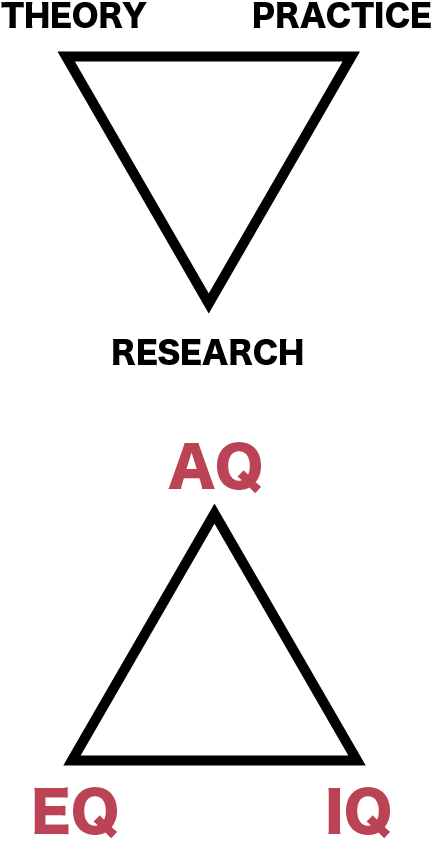
Milestones Completed
The Bachelor in Hospitality Management (BA.HM) offers students an intensive programme that emphasises significant and student-centered learning and sets out ambitious learning outcomes for students’ attainment throughout the four years of study.
The intended learning outcomes chime with offering a unique combination of theory, practice and research integrated in our real-life learning environment and programme curriculum. This combination aims distinctively to stimulate students to develop three quotients, namely IQ, EQ and AQ:
IQ
foundational knowledge, in-depth understanding of hospitality and critical thinking (IQ: Intelligence Quotient)
EQ
highly developed personal and intercultural skills (EQ: Emotional or Emotional Intelligence Quotient)
AQ
skills related to resilience and agility in response to change (AQ: Adversity Quotient)
The HTH Bachelor in HM meets the requirements of the Professional and Educational Profile (PEP) 2017-2022 as drawn up by the Dutch Hotel Management stem programmes. The Sectorial Advisory Board (Dutch: Sectoraal Adviescollege (SAC)) has just accepted the new PEP (2023-2028), and Hotelschool The Hague has played a key role in creating a new up-to-date profile.
Both the current and the new PEP were created after careful consultation with the industry and students and comply with the Dublin Descriptors Bachelor level (first cycle), as well as the EQF and NLQF level 6 descriptors. In addition, the PEP works with the AuCom model (Bulthuis, 2011) and the PEP 2023-2028 has incorporated the revised AuCom-I model (Bulthuis, 2021).
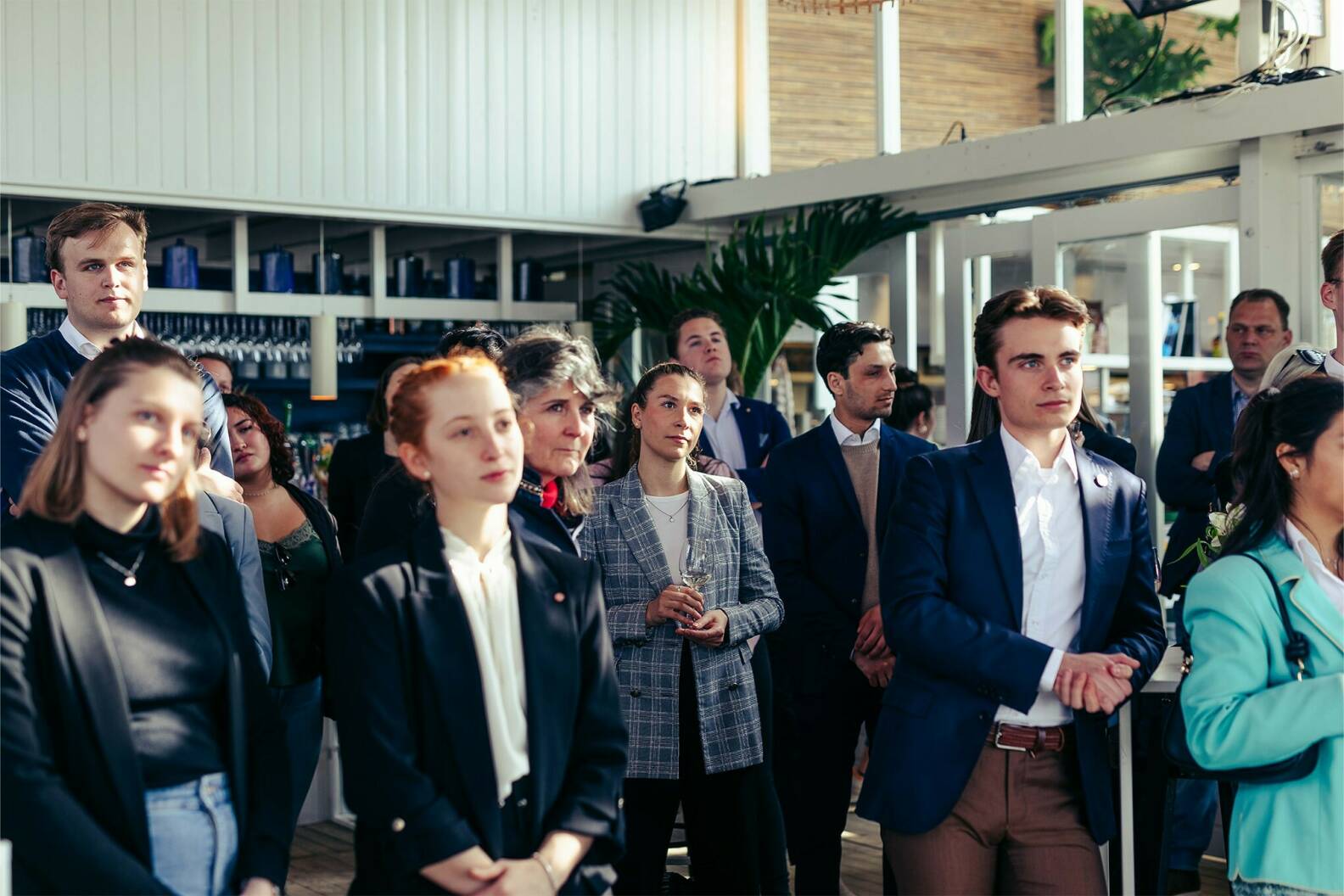

Special Feature: Small-Scale and Intensive Education
Currently, the BA.HM at HTH has based its end qualifications on the Programme Learning Outcomes (PLOs) as described in the PEP 2017-2022 and has used these to create our own HTH PEP + version. In defining our own PEP, the end level of the following PLOs has been increased from AuCom level 2 to level 3 of PLO A1 (soft skills), PLO 6, PLO 10 and PLO 11 (hard skills).
These PLOs were chosen specifically as they link to the hospitality graduate, we wish to deliver at HTH. We aim to prepare our students to become inquisitive and strategic business leaders who can critically analyse information from various sources to make informed decisions. This is why the decision was made to increase the end requirement for these specific PLOs to level 3.


Special Feature: Small-Scale and Intensive Education
Further, the structure of the BA curriculum is such that emphasis is placed on autonomy, complexity and interdisciplinarity in Year 4. Students meet the required PLOs at the end of Year 3, and Year 4 is dedicated to broadening and deepening their knowledge on selected PLOs as well as on increased autonomy, working on more complex assignments in more uncertain contexts of real-life cases and learning to view problems from multidisciplinary perspectives.
In addition to the above enhancements, several HTH specific PLOs have been created to support our belief that students need to develop AQ (Adversity Quotient) and a growth mindset to deal with the rapid changes in the hospitality industry and thrive in jobs of the future. The learning outcomes linked to AQ include control, ownership, reach and endurance. These intended learning outcomes demonstrate the importance we place on creating agile, responsible and resilient graduates.
PLO hard skills | AuCom-I level | PLO soft skills | AuCom-I level | ||
PLO 1,2 | Marketing, sales, distribution | 2 2 | PLO A Design based research skills / Critical thinking | A1. Design based research skills | 3 |
PLO 3,4 | Finance, Accounting, Law | 2 1 | A2. Analysing skills | 3 | |
PLO 5 | Operations Management | 2 | A3. Digital skills | 3 | |
PLO 6,7 | Strategic Hospitality Management & Change | 3 | A4. Innovation/creative skills | 2 | |
2 | |||||
PLO 8,9 | Leadership & People | 2 2 | A5. English skills | n.a. | |
PLO 10 | Business Improvement | 3 | PLO B AQ skills | B1. Control | 2 (HTH specific) |
PLO 11 | Management of Information | 3 | B2. Ownership | 2 (HTH specific) | |
B3. Reach | 2 (HTH specific) | ||||
B4. Endurance | 2 (HTH specific) | ||||
PLO C EQ skills | C1. Self-awareness | 3 | |||
C2. Self- management | 3 | ||||
C3. Social Awareness | 3 | ||||
C4. Relationship Management | 3 (HTH specific) | ||||
2 | |||||
PLO D Hospitality skills | D1. Guest centric | 2 (HTH specific) | |||
D2. Entrepreneurial behaviour | 2 (HTH specific) | ||||
D3. Guest interaction | n.a. | ||||
D4. Project Management | 3 (HTH specific) | ||||
HTH BA.HM PLOs Overview, PEP 2017-2022

Special Feature: Small-Scale and Intensive Education
Furthermore, we have addressed what we perceived to be a gap in the PEP 2017-2022, namely hospitality specific skills. By adding 4 specific skills linked to hospitality; guest centricity, entrepreneurial behaviour, guest interaction and project management, we sought to distinguish our graduates (in comparison with the other Dutch Hotel Management stem programmes) and to prepare them for all industries where hospitality makes a difference.
In the PEP 2023-2028, we see that hospitality has been added as a PLO at level 3 in the Working in International Hospitality Management category. In addition, more importance is given to creating resilient graduates. This decision is aligned with a new vision of Hotelschool the Hague established in 2023 which identifies a focus on creating global hospitality leaders who give back to industry, to society and to our planet. In the Future Aspirations section, we will outline how we aim to take HTH unique PLOs forward.

As a beacon in hospitality business education and research, we develop leaders who shape our global industry and drive it to give back more than it takes. Our communities embrace business practices that have a positive impact on our society and planet.
Vision Hotelschool The Hague, 2023
HTH Institutional Plan 2024-2027
Programme Orientation
The BA.HM prepares students for hospitality in the broadest sense of the word; the definition of hospitality as described by Oskam and Zandberg (2014) and used in the PEP 2017 and 2023 is applied.
This definition identifies 3 tiers of hospitality: primary, secondary and tertiary hospitality. The primary area includes, for example, lodging (hotels & resorts, motels, holiday centres and villages, hostels); food services and drinks venues; entertainment and recreation; and entrepreneurs, self-owned enterprises. The secondary area consists of, for example, reservation and (travel) distribution providers, food and beverage suppliers and hotel investment companies. The tertiary area involves, for example, health, wellness and related companies; transport; food retail and social enterprises.
The Vision 2030 and beyond states we prepare our graduates for working in Hospitality: any industry focused on taking care of people, as a service or an experience; “where hospitality makes the difference”. Graduates should be able to work in all three realms of hospitality, and our intended learning outcomes are applicable to all three areas of hospitality.
As such, Hotelschool The Hague defines the Hospitality Management discipline as a design-oriented discipline. This is primarily aimed at solving problems in organisations in an iterative manner allowing for shorter innovation cycles and the deployment of thought leadership as a way of playing in on current industry trends and societal debates. HTH is aimed to educate students to become research informed problem solvers and innovators for the hospitality industry and society.
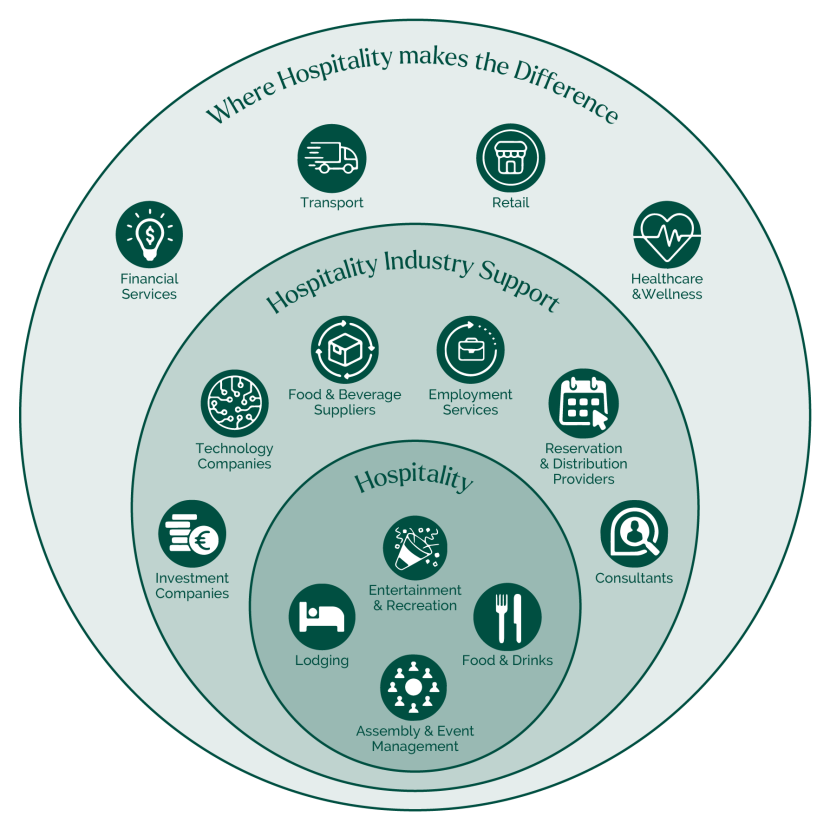
Industry Validation
Hotelschool The Hague has a long tradition of close collaboration with the international hospitality industry and other service sectors where hospitality makes a difference.
In this respect, the HTH International Industry Advisory Board provides the Board of Directors with biannual advice regarding trends, needs and challenges in the hospitality industry. The International Industry Advisory Board acts as a sparring partner for the Board of Directors where curriculum (renewal) development is concerned. For instance, the IAB emphasised the pivotal role of transversal skills with a particular focus on resilience and adaptivity skills of graduates ready to enter the labour market. Our subsequent improvements to the programme were clearly guided by these discussions and a belief that graduates need to be more comprehensively skilled to ensure increasing 21st century employment value.
The programme has extensive consultation and involvement with industry to ensure we stay aligned with the latest developments and demands of the hospitality industry. For instance, on January 20, 2023, a meeting with industry representatives was organised to help gauge agreement on the new PEP. Some of the feedback strengthened HTH’s focus on leadership and relationship management: “relationship and communication mighty important. Also, when collaboration, a leader is needed (Ronny Maier VP Marriott International)”. The use of the Birkman test was validated by the feedback of Erik Tengen (CEO Oaky): “Personal characteristics (Birkman) can be used, (red, green, blue). Spot on and can be a real advantage (to help young professionals reflect)”.
The annual industry meeting of June 3, 2022 also led to valuable input on the curriculum and the direction it should be taking to meet the needs of industry. Mark Struik (pleaseask.com) expressed how students need to be resilient in his team. This helps warrant the focus on AQ in the HTH curriculum. There was a call for social psychology and stakeholder management with students learning to view issues from different perspectives. Again, we feel these requests are covered in the curriculum by the HTH specific PEP.
In addition, supplementary industry contact is maintained per course through industry representatives being commissioners for assignments and student supervision (65% of the BA curriculum, 156 EC), providing guest lecturers and masterclasses and participating in Business Inspiration Days. Furthermore, informal discussions between staff and alumni (including the recently installed alumni advisory board Next Gen) are always encouraged to allow the programme to best reflect upon the changing aspects and demands of the hospitality industry. Based upon these overall discussions, an annual discussion takes place among the Curriculum Committee, comprised of lecturers and educational specialists, to reflect upon key industry trends, themes, and technologies and determine necessary content modifications for the subsequent academic year.
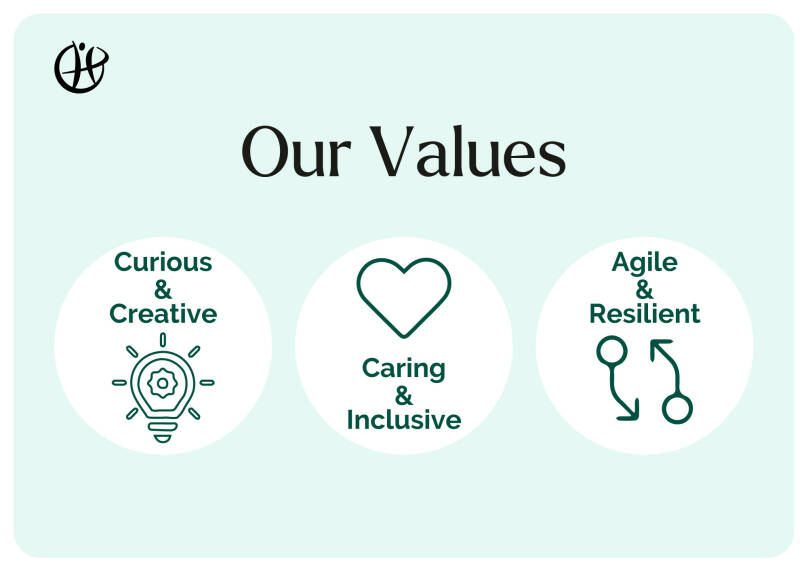
Future Aspirations
Currently, the Curriculum Committee is in the process of preparing an implementation plan for the PEP 2023-2028 which will be taken along in the refining of the BA courses as from academic year 2024-2025. In addition, the Institutional Plan 2024-2027 will be used to decide on the focal areas for an HTH specific graduate profile. Our values, mission and vision will play a role in the decision how and where to highlight or complement the joint PEP.

Back to top
We will ensure we make use of the freedom established in the PEP to create our own additional PLOs where needed and to increase the AuCom-I level where we see fit. This will enable our students to attain the distinctive hospitality and leadership skills of the HTH BA. HM graduate profile.
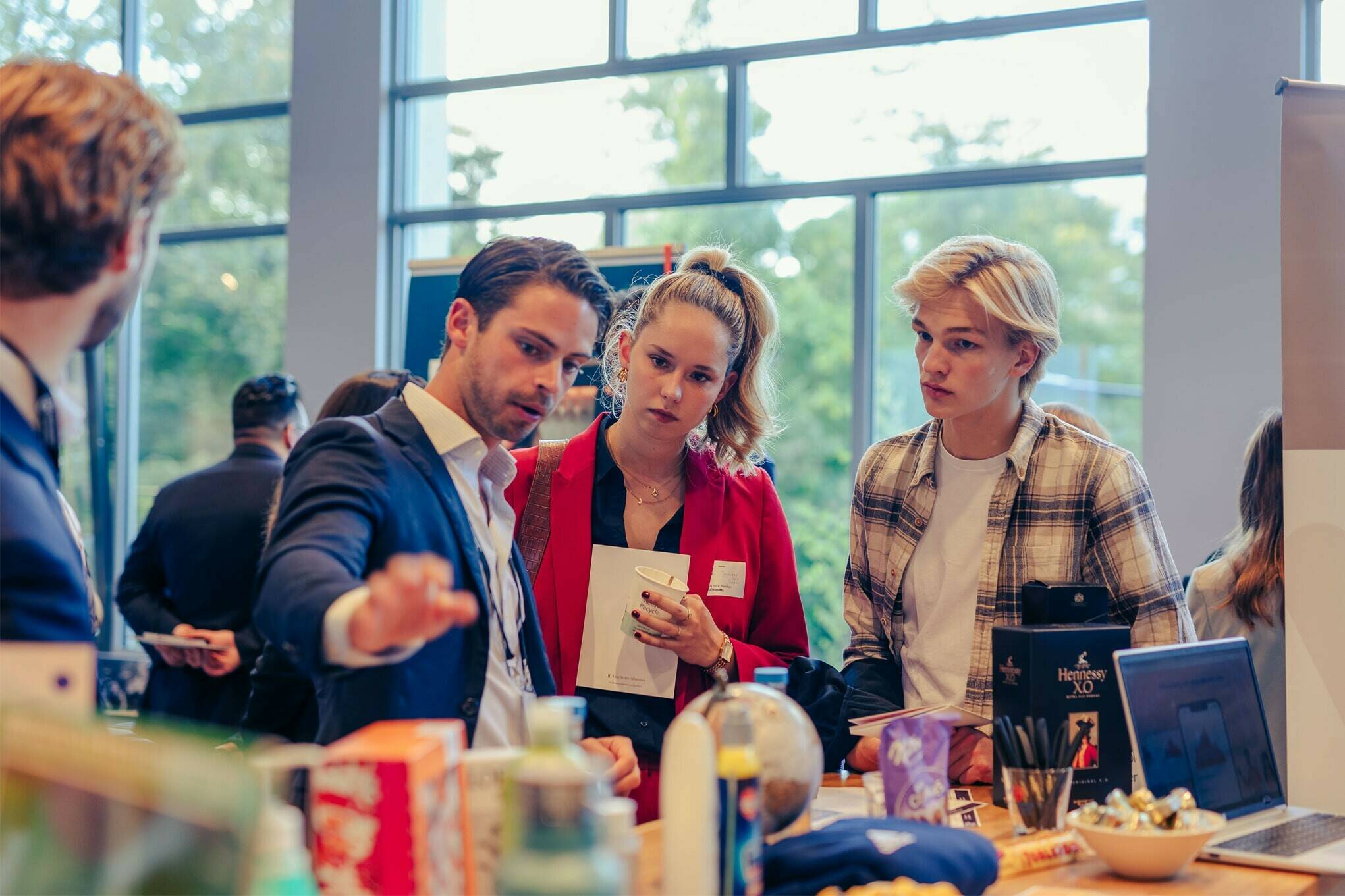
Back to Contents

Read Standard

Special Feature: Small-Scale and Intensive Education
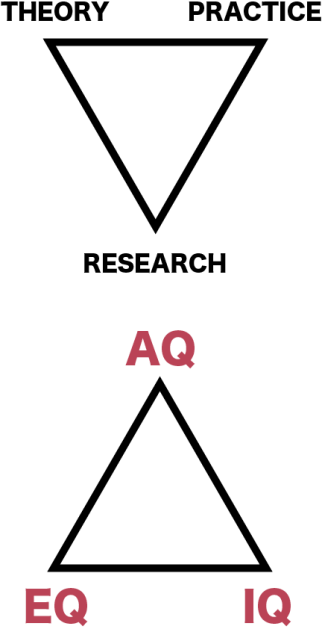
The Bachelor in Hospitality Management (BA.HM) offers students an intensive programme that emphasises significant and student-centered learning and sets out ambitious learning outcomes for students’ attainment throughout the four years of study.
The intended learning outcomes chime with offering a unique combination of theory, practice and research integrated in our real-life learning environment and programme curriculum. This combination aims distinctively to stimulate students to develop three quotients, namely IQ, EQ and AQ:
Milestones Completed
IQ
foundational knowledge, in-depth understanding of hospitality and critical thinking (IQ: Intelligence Quotient)
EQ
highly developed personal and intercultural skills (EQ: Emotional or Emotional Intelligence Quotient)
AQ
skills related to resilience and
agility in response to change
(AQ: Adversity Quotient)
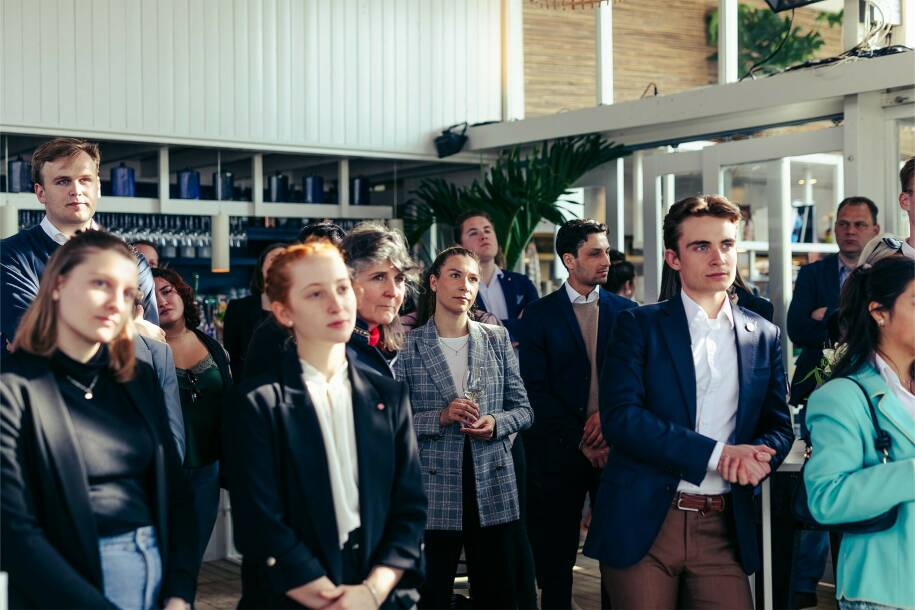
The HTH Bachelor in HM meets the requirements of the Professional and Educational Profile (PEP) 2017-2022 as drawn up by the Dutch Hotel Management stem programmes. The Sectorial Advisory Board (Dutch: Sectoraal Adviescollege (SAC)) has just accepted the new PEP (2023-2028), and Hotelschool The Hague has played a key role in creating a new up-to-date profile.
Both the current and the new PEP were created after careful consultation with the industry and students and comply with the Dublin Descriptors Bachelor level (first cycle), as well as the EQF and NLQF level 6 descriptors. In addition, the PEP works with the AuCom model (Bulthuis, 2011) and the PEP 2023-2028 has incorporated the revised AuCom-I model (Bulthuis, 2021).

Special Feature: Small-Scale and Intensive Education
Currently, the BA.HM at HTH has based its end qualifications on the Programme Learning Outcomes (PLOs) as described in the PEP 2017-2022 and has used these to create our own HTH PEP + version. In defining our own PEP, the end level of the following PLOs has been increased from AuCom level 2 to level 3 of PLO A1 (soft skills), PLO 6, PLO 10 and PLO 11 (hard skills).
These PLOs were chosen specifically as they link to the hospitality graduate, we wish to deliver at HTH. We aim to prepare our students to become inquisitive and strategic business leaders who can critically analyse information from various sources to make informed decisions. This is why the decision was made to increase the end requirement for these specific PLOs to level 3.


Special Feature: Small-Scale and Intensive Education
Further, the structure of the BA curriculum is such that emphasis is placed on autonomy, complexity and interdisciplinarity in Year 4. Students meet the required PLOs at the end of Year 3, and Year 4 is dedicated to broadening and deepening their knowledge on selected PLOs as well as on increased autonomy, working on more complex assignments in more uncertain contexts of real-life cases and learning to view problems from multidisciplinary perspectives.
In addition to the above enhancements, several HTH specific PLOs have been created to support our belief that students need to develop AQ (Adversity Quotient) and a growth mindset to deal with the rapid changes in the hospitality industry and thrive in jobs of the future. The learning outcomes linked to AQ include control, ownership, reach and endurance. These intended learning outcomes demonstrate the importance we place on creating agile, responsible and resilient graduates.
PLO hard skills | AuCom-I level | PLO soft skills | AuCom-I level | ||
PLO 1,2 | Marketing, sales, distribution | 2 2 | PLO A Design based research skills / Critical thinking | A1. Design based research skills | 3 |
PLO 3,4 | Finance, Accounting, Law | 2 1 | A2. Analysing skills | 3 | |
PLO 5 | Operations Management | 2 | A3. Digital skills | 3 | |
PLO 6,7 | Strategic Hospitality Management & Change | 3 | A4. Innovation/creative skills | 2 | |
2 | |||||
PLO 8,9 | Leadership & People | 2 2 | A5. English skills | n.a. | |
PLO 10 | Business Improvement | 3 | PLO B AQ skills | B1. Control | 2 (HTH specific) |
PLO 11 | Management of Information | 3 | B2. Ownership | 2 (HTH specific) | |
B3. Reach | 2 (HTH specific) | ||||
B4. Endurance | 2 (HTH specific) | ||||
PLO C EQ skills | C1. Self-awareness | 3 | |||
C2. Self- management | 3 | ||||
C3. Social Awareness | 3 | ||||
C4. Relationship Management | 3 (HTH specific) | ||||
2 | |||||
PLO D Hospitality skills | D1. Guest centric | 2 (HTH specific) | |||
D2. Entrepreneurial behaviour | 2 (HTH specific) | ||||
D3. Guest interaction | n.a. | ||||
D4. Project Management | 3 (HTH specific) | ||||
HTH BA.HM PLOs Overview, PEP 2017-2022

Special Feature: Small-Scale and Intensive Education
Furthermore, we have addressed what we perceived to be a gap in the PEP 2017-2022, namely hospitality specific skills. By adding 4 specific skills linked to hospitality; guest centricity, entrepreneurial behaviour, guest interaction and project management, we sought to distinguish our graduates (in comparison with the other Dutch Hotel Management stem programmes) and to prepare them for all industries where hospitality makes a difference.
In the PEP 2023-2028, we see that hospitality has been added as a PLO at level 3 in the Working in International Hospitality Management category. In addition, more importance is given to creating resilient graduates. This decision is aligned with a new vision of Hotelschool the Hague established in 2023 which identifies a focus on creating global hospitality leaders who give back to industry, to society and to our planet. In the Future Aspirations section, we will outline how we aim to take HTH unique PLOs forward.

As a beacon in hospitality business education and research, we develop leaders who shape our global industry and drive it to give back more than it takes. Our communities embrace business practices that have a positive impact on our society and planet.
Vision Hotelschool The Hague, 2023
HTH Institutional Plan 2024-2027
The Vision 2030 and beyond states we prepare our graduates for working in Hospitality: any industry focused on taking care of people, as a service or an experience; “where hospitality makes the difference”. Graduates should be able to work in all three realms of hospitality, and our intended learning outcomes are applicable to all three areas of hospitality.
As such, Hotelschool The Hague defines the Hospitality Management discipline as a design-oriented discipline. This is primarily aimed at solving problems in organisations in an iterative manner allowing for shorter innovation cycles and the deployment of thought leadership as a way of playing in on current industry trends and societal debates. HTH is aimed to educate students to become research informed problem solvers and innovators for the hospitality industry and society.
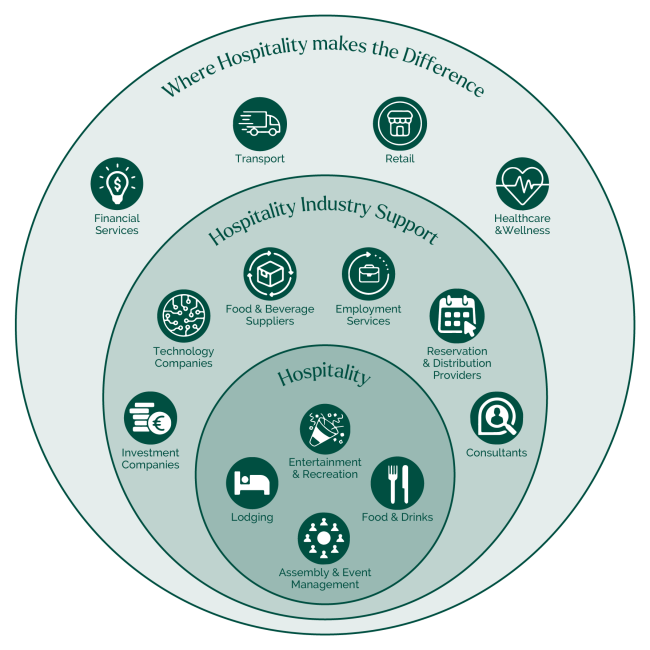
Programme Orientation
The BA.HM prepares students for hospitality in the broadest sense of the word; the definition of hospitality as described by Oskam and Zandberg (2014) and used in the PEP 2017 and 2023 is applied.
This definition identifies 3 tiers of hospitality: primary, secondary and tertiary hospitality. The primary area includes, for example, lodging (hotels & resorts, motels, holiday centres and villages, hostels); food services and drinks venues; entertainment and recreation; and entrepreneurs, self-owned enterprises. The secondary area consists of, for example, reservation and (travel) distribution providers, food and beverage suppliers and hotel investment companies. The tertiary area involves, for example, health, wellness and related companies; transport; food retail and social enterprises.
Industry Validation
Hotelschool The Hague has a long tradition of close collaboration with the international hospitality industry and other service sectors where hospitality makes a difference.
In this respect, the HTH International Industry Advisory Board provides the Board of Directors with biannual advice regarding trends, needs and challenges in the hospitality industry. The International Industry Advisory Board acts as a sparring partner for the Board of Directors where curriculum (renewal) development is concerned. For instance, the IAB emphasised the pivotal role of transversal skills with a particular focus on resilience and adaptivity skills of graduates ready to enter the labour market. Our subsequent improvements to the programme were clearly guided by these discussions and a belief that graduates need to be more comprehensively skilled to ensure increasing 21st century employment value.
The programme has extensive consultation and involvement with industry to ensure we stay aligned with the latest developments and demands of the hospitality industry. For instance, on January 20, 2023, a meeting with industry representatives was organised to help gauge agreement on the new PEP. Some of the feedback strengthened HTH’s focus on leadership and relationship management: “relationship and communication mighty important. Also, when collaboration, a leader is needed (Ronny Maier VP Marriott International)”. The use of the Birkman test was validated by the feedback of Erik Tengen (CEO Oaky): “Personal characteristics (Birkman) can be used, (red, green, blue). Spot on and can be a real advantage (to help young professionals reflect)”.
The annual industry meeting of June 3, 2022 also led to valuable input on the curriculum and the direction it should be taking to meet the needs of industry. Mark Struik (pleaseask.com) expressed how students need to be resilient in his team. This helps warrant the focus on AQ in the HTH curriculum. There was a call for social psychology and stakeholder management with students learning to view issues from different perspectives. Again, we feel these requests are covered in the curriculum by the HTH specific PEP.
In addition, supplementary industry contact is maintained per course through industry representatives being commissioners for assignments and student supervision (65% of the BA curriculum, 156 EC), providing guest lecturers and masterclasses and participating in Business Inspiration Days. Furthermore, informal discussions between staff and alumni (including the recently installed alumni advisory board Next Gen) are always encouraged to allow the programme to best reflect upon the changing aspects and demands of the hospitality industry. Based upon these overall discussions, an annual discussion takes place among the Curriculum Committee, comprised of lecturers and educational specialists, to reflect upon key industry trends, themes, and technologies and determine necessary content modifications for the subsequent academic year.
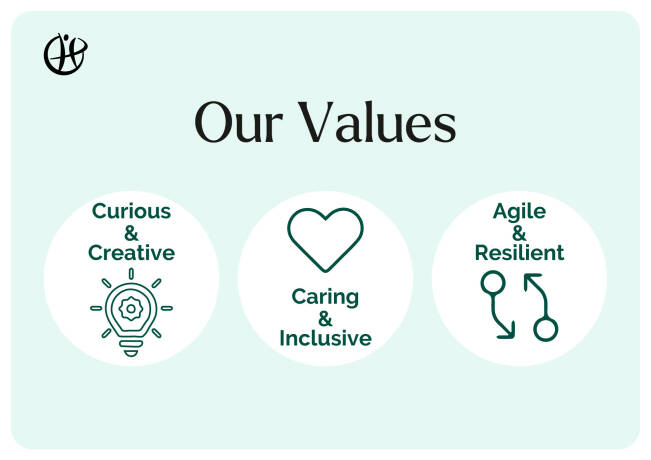
Currently, the Curriculum Committee is in the process of preparing an implementation plan for the PEP 2023-2028 which will be taken along in the refining of the BA courses as from academic year 2024-2025. In addition, the Institutional Plan 2024-2027 will be used to decide on the focal areas for an HTH specific graduate profile. Our values, mission and vision will play a role in the decision how and where to highlight or complement the joint PEP.
Future Aspirations

Back to top
We will ensure we make use of the freedom established in the PEP to create our own additional PLOs where needed and to increase the AuCom-I level where we see fit. This will enable our students to attain the distinctive hospitality and leadership skills of the HTH BA. HM graduate profile.
Scroll

